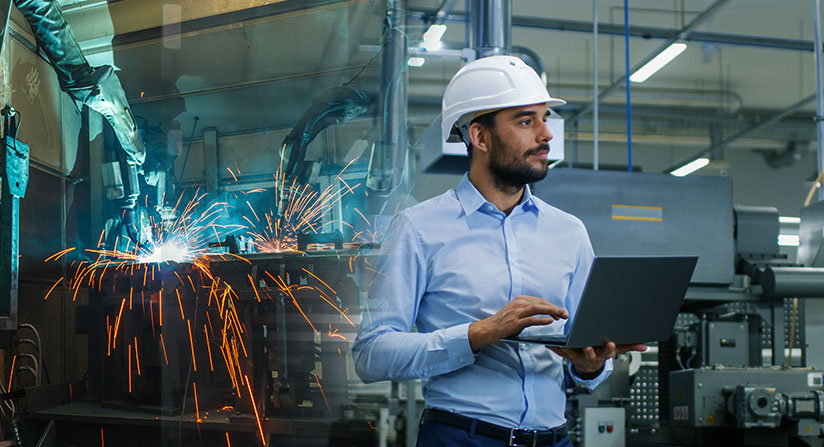
In the rapidly evolving field of electronics, precision and efficiency are paramount. As the demand for complex and compact designs continues to grow, manufacturers, like www.ourpcb.com are increasingly turning to CNC (Computer Numerical Control) machining services to enhance PCB (Printed Circuit Board) fabrication.
This post explores the techniques and benefits of integrating CNC machining into PCB manufacturing, shedding light on how it transforms the production landscape.
Understanding CNC Machining and Its Role in PCB Fabrication
CNC machining refers to the automated control of machining tools and 3D printers by a computer. It enables precise cutting, drilling, milling, and shaping of materials to create intricate parts. In PCB fabrication, CNC machining plays a crucial role in producing high-quality boards with exceptional accuracy and detail.
Key Techniques in CNC Machining for PCB Fabrication
Milling
Overview: CNC milling is a subtractive manufacturing process that involves removing material from a workpiece using rotating cutting tools. It can produce complex geometries and fine details on PCBs.
Applications: Milling is often used for creating slots, holes, and other features on the PCB surface, allowing for the integration of components and enhancing the overall functionality of the board.
Drilling
Overview: CNC drilling is employed to create holes in PCBs for component mounting and interconnections. Precision drilling is essential for maintaining the integrity of the board.
Applications: It is particularly useful for creating vias, which are essential for multilayer PCBs, enabling electrical connections between different layers.
Routing
Overview: CNC routing involves using a rotating tool to cut out the PCB shape and trim excess material. This technique is vital for achieving the desired dimensions and contours.
Applications: Routing is commonly used in the final stages of PCB fabrication to define the outline and features of the board.
Etching
Overview: CNC etching uses a chemical process to remove unwanted copper from the PCB surface, allowing for the creation of precise circuit patterns.
Applications: This technique is essential for forming the conductive pathways on the PCB, ensuring proper functionality.
Laser Cutting
Overview: Laser cutting utilizes high-powered lasers to cut or engrave materials with extreme precision. It is particularly beneficial for detailed work on PCBs.
Applications: Laser cutting is often used for intricate designs, enabling manufacturers to create complex features that are difficult to achieve with traditional methods.
Benefits of Integrating CNC Machining in PCB Fabrication
Enhanced Precision
CNC machining provides unmatched accuracy, with tolerances often as tight as ±0.01 mm. This precision is critical in PCB fabrication, where small errors can lead to significant performance issues or failures.
Increased Efficiency
The automation of CNC machining processes accelerates production timelines. According to a study by the Manufacturing Institute, CNC machining can increase productivity by up to 50%, allowing manufacturers to meet tight deadlines and adapt to market demands quickly.
Complex Design Capabilities
CNC machining allows for the production of intricate designs and features that are difficult or impossible to achieve with traditional manufacturing methods. This capability opens new avenues for innovation in PCB design.
Material Versatility
CNC machining can work with a wide range of materials, including FR4, polyimide, and aluminum. This versatility enables manufacturers to choose the best material for their specific applications, enhancing the performance and durability of the PCBs.
Cost-Effectiveness
While the initial investment in CNC machinery can be significant, the long-term cost savings are substantial. Reduced material waste, faster production times, and lower labor costs contribute to a more economical manufacturing process.
Rapid Prototyping
The ability to quickly produce prototypes using CNC machining facilitates faster design iterations. This is especially important in industries where time-to-market is crucial. A report from the McKinsey Global Institute highlights that rapid prototyping can reduce development times by up to 75%.
Consistency and Repeatability
CNC machines produce consistent results, ensuring that each PCB meets the same high standards. This repeatability is essential for mass production, where maintaining quality across thousands of units is critical.
Real-World Applications of CNC Machining in PCB Fabrication
Consumer Electronics
Companies like Apple and Samsung utilize CNC machining for precision components in smartphones and tablets. The complexity and miniaturization of these devices necessitate the use of CNC technology to achieve the required specifications.
Aerospace
The aerospace industry relies on CNC machining for critical PCB components used in avionics. The high standards of safety and reliability in this sector demand the precision that CNC machining provides.
Medical Devices
In the medical field, companies such as Medtronic leverage CNC machining for the production of PCBs used in diagnostic and therapeutic devices. The ability to create custom designs rapidly is crucial for meeting the unique needs of healthcare applications.
Automotive
The automotive industry employs CNC machining for PCBs in advanced driver-assistance systems (ADAS) and electric vehicles. The complexity of these systems requires high-precision machining to ensure reliable performance.
Challenges and Considerations
While the benefits of CNC machining in PCB fabrication are significant, there are challenges to consider:
- Initial Investment: The cost of CNC machines and software can be high, posing a barrier for small manufacturers.
- Technical Expertise: Operating CNC machines requires skilled personnel who understand both the technology and the intricacies of PCB design.
- Material Limitations: Not all materials are suitable for CNC machining, and some may require specialized tools or processes.
Conclusion
CNC machining services are enhancing PCB fabrication by offering precision, efficiency, and the ability to create complex designs. As industries continue to demand higher quality and faster production times, the integration of CNC technology will become increasingly vital.
For manufacturers looking to remain competitive in the evolving electronics landscape, investing in CNC machining capabilities is a strategic move. By harnessing the power of CNC technology, companies can optimize their PCB production processes, leading to better products and greater market success. The future of PCB manufacturing is undeniably intertwined with CNC machining, paving the way for innovative advancements in electronics design and assembly.
